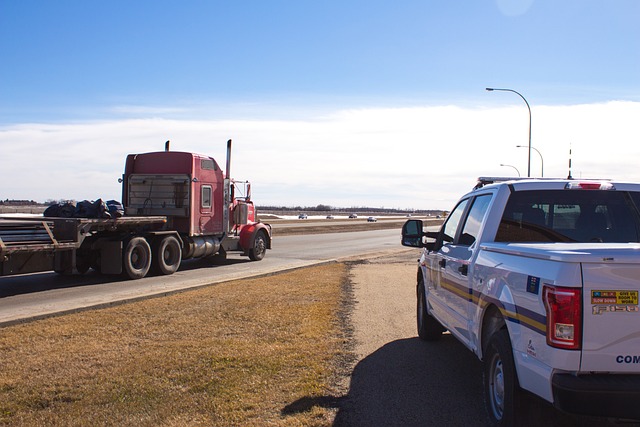Understanding driver-related risks is key for small fleet insurance providers. Beyond vehicle damage, insurers must address behavioral issues, fatigue, and non-compliance with safety regulations. This involves evaluating driver behavior, implementing rigorous training programs, ensuring adherence to rest guidelines, and conducting regular risk assessments. By offering tailored protection, these measures enhance safety, foster accountability, improve operational efficiency, and ensure regulatory compliance for small fleet operations.
In the realm of small fleet insurance, mitigating driver-related risks is paramount for operational safety and regulatory compliance. This article guides fleet managers through a comprehensive approach to addressing these risks. We explore key risk factors such as driver behavior, vehicle maintenance, and regulatory adherence, highlighting their impact on overall fleet performance. Leveraging best practices in driver safety, compliance strategies, and robust risk management policies, operators can ensure their small fleets navigate challenges effectively, enhancing both efficiency and safety.
Understanding Driver-Related Risks in Small Fleet Insurance

Understanding driver-related risks is paramount for businesses operating small fleets. These risks extend beyond vehicle damage and accidents to include behavioral issues, fatigue, and non-compliance with safety regulations. For small fleet insurance, this means policies must be tailored to address these unique challenges. By evaluating driver behavior, implementing rigorous training programs, and ensuring adherence to rest and safety guidelines, insurers can craft comprehensive coverage that protects both the business and its drivers.
Small fleet insurance providers should also consider the importance of regular risk assessments and ongoing monitoring. This proactive approach allows for swift identification and mitigation of emerging risks, ensuring that policies remain effective as driver patterns and road conditions evolve. Ultimately, a deep understanding of driver-related risks enables small fleet insurance plans to offer tailored protection, enhancing safety and peace of mind for businesses navigating the complexities of modern transportation.
Identifying Key Risk Factors and Their Impact

Identifying Key Risk Factors is paramount in managing driver-related risks, especially for small fleet operations. These risks can stem from various sources, such as driver behavior, vehicle conditions, and external environmental factors. For instance, young or inexperienced drivers may exhibit risky driving habits, increasing the likelihood of accidents. Similarly, poorly maintained vehicles can lead to mechanical failures, causing potential hazards on the road. Additionally, understanding the impact of fatigue, distractions, and poor weather conditions is crucial. Small fleet insurance policies should be tailored to address these factors, ensuring comprehensive coverage that protects against financial losses and legal liabilities resulting from driver-related incidents.
By recognizing and mitigating these risks through targeted risk management strategies and appropriate insurance solutions, small fleet operators can create a safer driving environment. This proactive approach not only reduces the chance of accidents but also fosters a culture of accountability and responsibility among drivers, ultimately contributing to operational efficiency and regulatory compliance.
Strategies to Fully Address Driver Safety and Compliance

To fully address driver-related risks, especially for small fleet operations, a multi-faceted strategy is essential. Firstly, regular training sessions on safety protocols and compliance updates should be conducted to keep drivers informed about changing regulations. This includes topics like defensive driving techniques, load securing, and fatigue management. Incorporating these practices into the daily routine ensures drivers are not just aware but also adept at mitigating potential hazards.
Additionally, implementing robust monitoring systems using technology can significantly enhance safety. Small fleet insurance providers often offer telematics solutions that track driver behavior, vehicle performance, and adherence to speed limits and safe driving conditions. These real-time insights enable insurers and fleet managers to identify high-risk drivers or areas requiring improvement, allowing for timely interventions and proactive risk mitigation measures.
Implementing and Reviewing Comprehensive Risk Management Policies

Implementing and reviewing comprehensive risk management policies is paramount for any organization, especially those operating a small fleet. This involves creating detailed guidelines that encompass various driver-related risks, from safety protocols to liability coverage. By integrating these policies into daily operations, companies can foster a culture of accountability and responsible driving practices.
Regular reviews are essential to ensure these policies remain effective and aligned with evolving regulations. For small fleet insurance providers, staying updated on industry trends and updating their risk management strategies accordingly is crucial. This proactive approach not only protects the business but also enhances the overall safety of drivers and vehicles on the road.
In conclusion, addressing driver-related risks is paramount for any business operating a small fleet. By understanding key risk factors, implementing strategic safety measures, and adopting comprehensive risk management policies, companies can significantly enhance driver safety and compliance. These steps are essential to mitigate potential losses and ensure the long-term success and sustainability of their small fleet insurance programs.
